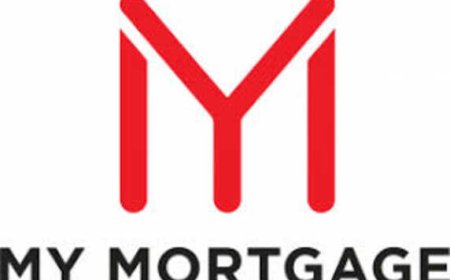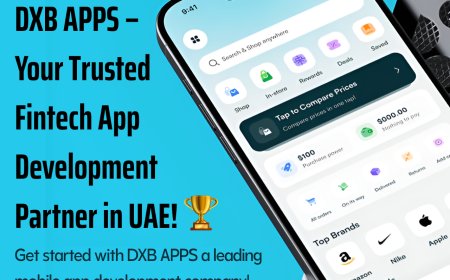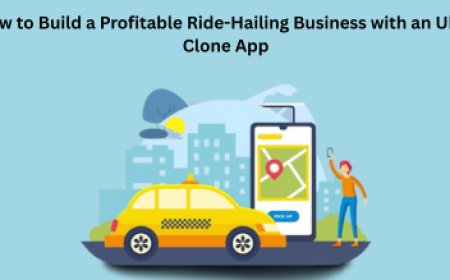How to Build a Personal Brand That Attracts Opportunities as an Entrepreneur
Building a personal brand involves showcasing your unique skills, values, and personality to create a lasting impression in your industry. It helps you attract career opportunities, grow your network, and build trust with your audience.
In the world of entrepreneurship, people invest in people before they invest in products. Whether you're launching a tech startup, running a consultancy, or building a direct-to-consumer brand, your personal brand can open more doors than your pitch deck ever could.
Your reputation both online and offline is the foundation upon which partnerships, media coverage, funding, and customer trust are built. In an age where business is deeply personal, entrepreneurs need to be more than founders; they need to be the face, voice, and soul of what they build.
This is especially true in a competitive ecosystem where hundreds of startups launch daily. The difference between those who grow and those who get ignored? Visibility, credibility, and authenticity all elements of a strong personal brand.
Lets break down how entrepreneurs can use their brand to attract attention, build trust, and unlock new levels of opportunity.
1. Define the Founder Identity You Want to Be Known For
Your startup might evolve, pivot, or even change industries. But your personal brand can remain a constant force if it's rooted in who you are and what you stand for.
Ask yourself:
-
What problems do I care most about solving?
-
What values guide my decisions as a founder?
-
What type of leader do I want to be known as visionary, operator, disruptor, mentor?
When you get clear on your identity, it's easier to develop consistent messaging across your platforms and interactions. Youre not just promoting a business you're shaping a reputation that investors, partners, and customers can rally behind.
2. Make Yourself Visible on Key Channels
Visibility is vital for entrepreneurs. If no one knows who you are, they wont care about what youre building.
Start with the three most important visibility platforms:
-
LinkedIn: Ideal for thought leadership, networking, and startup storytelling.
-
Twitter/X: A hub for real-time startup conversations, venture capital insights, and trendspotting.
-
Podcast guesting or hosting: A great way to establish authority, share your journey, and build a deeper connection with your audience.
Post consistently, share original insights, and document your startup journey. Even the messy parts in fact, especially those help make your brand more relatable and trustworthy.
3. Own Your Founder Story
Your journey as a founder is a story and stories build connection.
Investors want to know why you're the person to solve a problem. Customers want to know why they should trust your mission. Partners want to feel inspired to work with you.
To craft your founder narrative, answer:
-
What inspired you to start this business?
-
What problem are you obsessed with solving?
-
What setbacks have shaped your thinking or growth?
Sharing your mission with vulnerability and clarity allows others to see the human behind the hustle. It turns you from just another entrepreneur into someone people believe in.
4. Leverage Thought Leadership Content
One of the most effective ways to build your personal brand is by sharing what you know.
This doesnt mean recycling clichs. Instead, use content to:
-
Share lessons from building your business (successes and failures)
-
Explain how you approach product development, culture, or strategy
-
Comment on industry shifts or customer behavior
-
Educate others with frameworks or mental models
Content builds authority. It shows youre not just building a product you're thinking deeply, learning, and leading in your space.
5. Be a Guest on Podcasts and Panels
Startups thrive on credibility. One way to gain it fast? Borrow it.
Being featured on reputable podcasts, conference panels, or webinars puts your brand in front of new audiences and elevates your status. It creates instant third-party validation and often leads to new business leads, investor interest, or media inquiries.
Dont wait to be discovered pitch yourself:
-
Share a unique angle or experience
-
Position yourself as someone who can speak on a trending topic
-
Reference how your insights will help the shows audience
After your appearance, share the recording widely another piece of content to add to your branding arsenal.
6. Build Relationships, Not Just Followers
The most valuable part of your personal brand is your network. Many startup founders miss this because they focus solely on vanity metrics (likes, views, comments).
Instead, focus on:
-
Engaging with fellow entrepreneurs and investors on social media
-
Attending industry events and actually following up with connections
-
Starting conversations in communities like Indie Hackers, Slack groups, or accelerators
Strong relationships lead to partnerships, beta testers, hires, and media introductions. These are the real opportunities and they often come quietly, not publicly.
7. Be Consistent in Messaging and Tone
Your brand should feel consistent whether someone sees your tweet, watches you on stage, or reads your blog post.
Tips for consistency:
-
Use a similar voice across platforms (are you funny, analytical, inspiring?)
-
Stay aligned with your mission and values
-
Avoid trying to please everyone speak to your niche
Remember: people trust familiarity. If your tone or message changes too much, people will hesitate to engage or invest.
8. Position Yourself for Long-Term Credibility
While its tempting to chase hype, the most respected entrepreneurs focus on long-term trust. That means:
-
Showing up when its hard
-
Owning mistakes publicly
-
Giving credit to your team and mentors
-
Delivering on promises to customers and users
Your personal brand isn't just about what you say it's about what others say about you when youre not in the room. That reputation, built on consistency and integrity, leads to invitations, deals, and trust money cant buy.
9. Invest in Your Visual Identity
While content and credibility matter most, visual branding helps you make a great first impression especially in tech and startup circles.
Tips:
-
Use a consistent profile photo across platforms
-
Add branded colors or headers on your LinkedIn or website
-
Use presentation decks that reflect your aesthetic and professionalism
-
Design a simple one-page personal site with your bio, key achievements, and contact info
Your personal brand should look as sharp as your pitch.
10. Align Your Brand With Your Business Goals
Your personal brand should act as a bridge between who you are and what youre building.
If your goal is to raise funding, share lessons on team building, product-market fit, and traction. If your aim is to land enterprise clients, highlight your experience solving business pain points. If you're building a community-led brand, show up as a leader who listens and engages.
Many founders forget this step. Your brand isnt just about storytelling its a strategic growth tool that can fuel your companys momentum.
If you're trying to figure out how to build a personal brand that drives investor confidence, customer loyalty, and media buzz, start by being intentional about who you are and where you're headed then show up consistently.
?? Author Bio:
WestexWiki is a digital publishing platform that helps entrepreneurs, creators, and professionals turn their personal stories into strategic brands that open doors and scale impact across industries.












































